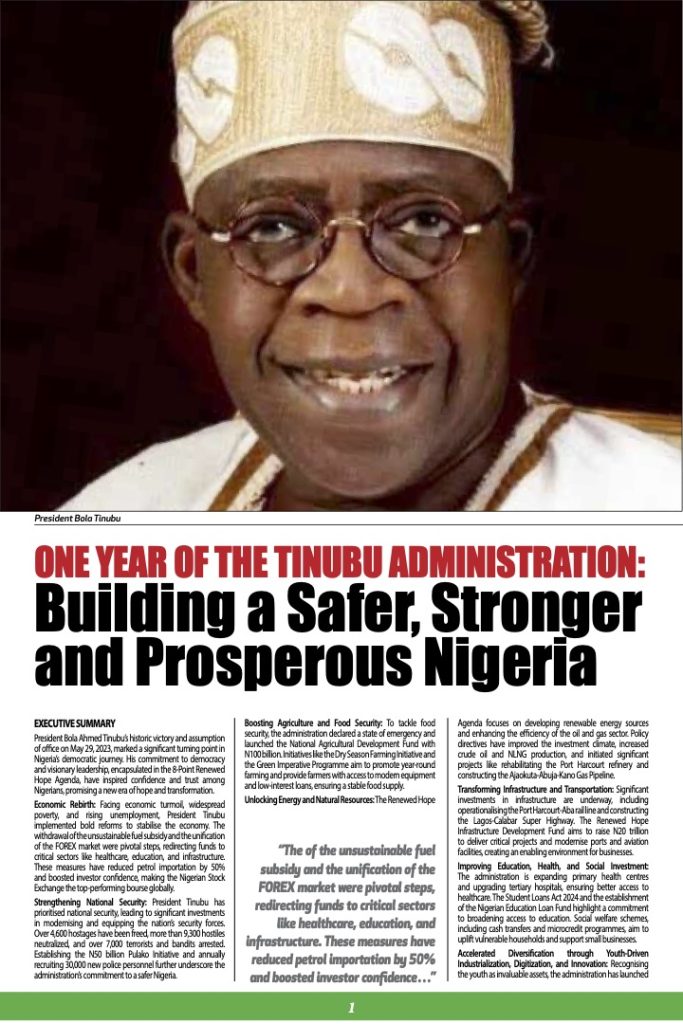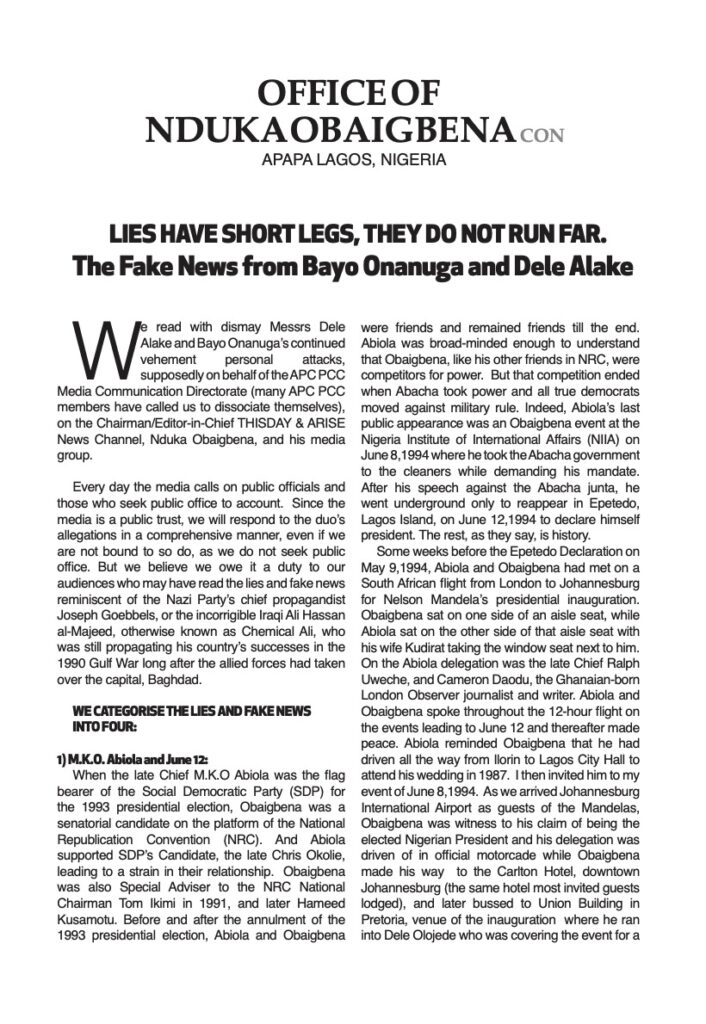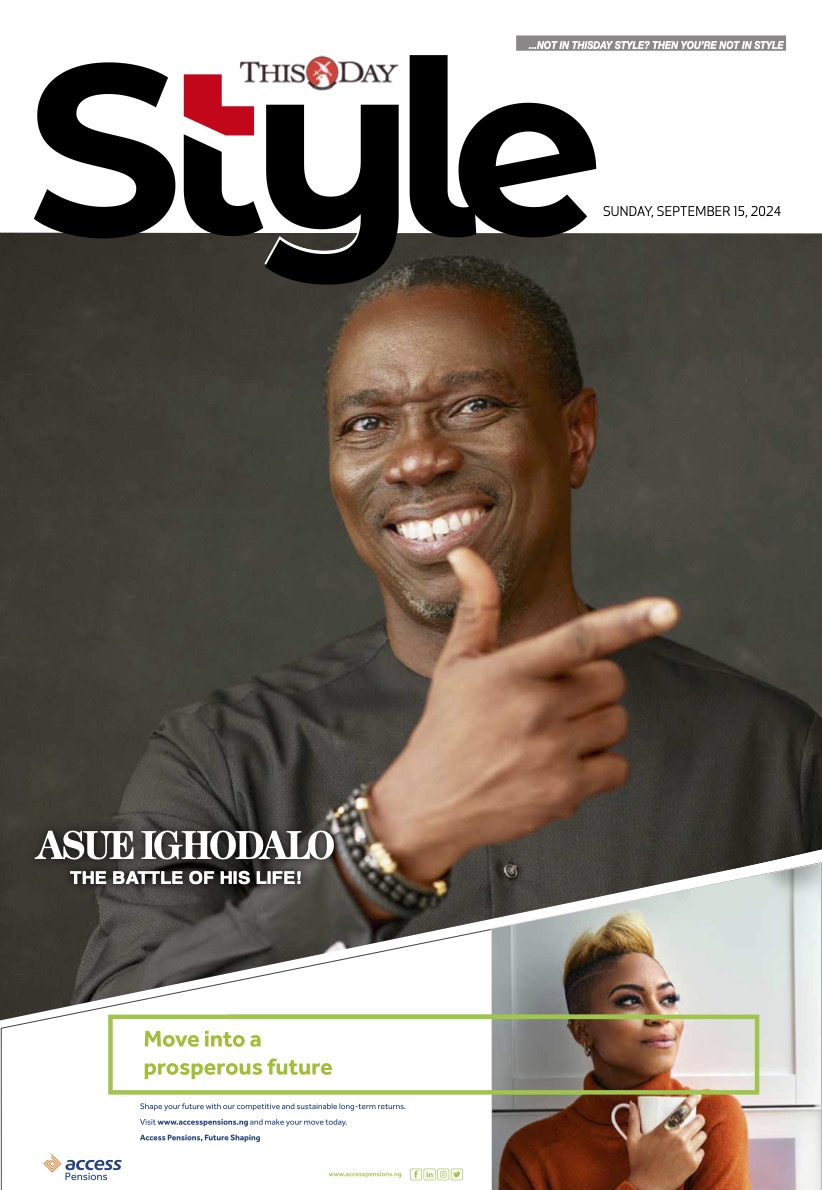Latest Headlines
The Bar and Bench in Justice Abuse

The Advocate By Onikepo Braithwaite Onikepo.braithwaite@thisdaylive.com
The Advocate
By Onikepo Braithwaite
Onikepo.braithwaite@thisdaylive.com
Last Thursday, I participated in the Nigerian Bar Association (NBA) Lagos Branch Law Week’s Bar & Bench Forum, as a Panelist in one of the sessions. I found the two Panels that l listened to, that is, the one before ours, and then mine, quite interesting. While the first Panel discussed technology vis-à-vis the Lagos High Court, with Hon. Justice Adenike Coker tracing how things were when they were elevated to the Bench in 2001 to date, and members discussing areas that could be improved upon, the topic of discussion for my Panel was “Relationship Between the Bar and the Bench: Expectations of the Judex”. Members of my Panel were Hon. Justice Oluwatoyin Ipaye, the Administration Judge of the Lagos High Court; Hon. Justice Olayinka Faji of the Federal High Court; Abimbola Akeredolu, SAN; Olawale Fapohunda, SAN; and our Chairman/Moderator, Charles Edosomwan, SAN.
We, however, extended the scope of our topic to include expectations of the people, and for me, the people, particularly the common man, since the Judex would be limiting it to the expectations of only judicial officers. In any event, only two out of the six of us on the Panel, were Judges. In fact, Mrs Akeredolu, SAN, observed that other parts of the Judiciary like the Court Registry Staff must be added to the topic of the collaboration of the Bar and the Bench, as the Registry also plays an important part of administration of justice, quite capable of making or marring the efforts of the other two. Mrs Akeredolu cited the example where the Court Registry Staff fail to insert court processes into the court file, and matters are adjourned because the processes are not before the Judge on the court date, thereby delaying the case. Though it is not part of a Lawyer’s job description, many don’t leave it to chance, and are at the Court Registry the day before their matter comes up, and even again on the morning it comes up, to ensure that all processes are in the court’s file!
I think it is more useful to look at the relationship between the Bar and the Bench vis-à-vis what is expected of each body individually and jointly; whether their relationship has achieved the goals it is supposed to, that is, enhancing administration of justice, and if it hasn’t, how the goals can be achieved. However, because of time constraints, I for one, was unable to tackle the topic as deeply as I could or should have.
What is Expected of the Bar and the Bench
I did begin by stating the fact that, it is necessary for the Bar and Bench to have a cordial relationship based on mutual respect, a collaboration to serve the interest of justice and uphold the rule of law. But, it goes beyond that, because the Judex expects all members of the Bar give due respect to the Judiciary (contempt proceedings can be brought against a Lawyer who disrespects the court); adhere to the Rules of Professional Conduct for Legal Practitioners, and conduct their cases properly with utmost professionalism. Part IV Section 30-38 of the Rules of Professional Conduct for Legal Practitioners 2023 (RPC) provides for what is expected of a Lawyer in court, not just by Judges, but, generally, as officers in the temple of justice; for example, Lawyers must prepare their cases properly before filing them and they must not to do anything that will cause a delay in the administration of justice (or support their clients to do same); they are not to manipulate the legal system for the benefit of their clients; nor are they to go to all manner of media to insult Judges, but to channel whatever complaints such Lawyer may have against a Judge to the proper authorities, that is, the Chief Judge of that Court possibly for a reassignment of the matter to another Judge, or if necessary, to the National Judicial Council (NJC).
Judges are expected to uphold their Judicial Oath contained in the Seventh Schedule to the 1999 Constitution of the Federal Republic of Nigeria (as amended in 2023)(the Constitution) and abide by the Code of Conduct for Public Officers contained in the Fifth Schedule to the Constitution, among which is to carry out their duties honestly in accordance to the Constitution and the law; to interpret the law correctly, when called upon to do so; to protect the rights of the people; to be a check and balance on the other two arms of government, the Executive and the Legislature; to be incorruptible; to be impartial and independent; to enforce the law equally, whether for the rich or the poor; to adjudicate on cases judiciously and judicially, applying the law correctly in reaching a decision; and of course, to give Counsel their due respect.
These are the reasonable expectations that everybody has of the Bar and the Bench, and the expectations they have of each other. This is because, if each side collaborated to play its part like it should like as I have outlined above, then administration of justice in Nigeria would have reached an enviable level. Alas! Unfortunately, we seem to be heading in the opposite direction in some ways, as we see a collaboration between the Bar and the Bench, particularly at the level of the Magistrate, High Court and maybe even the Court of Appeal at times, to truncate the administration of justice, so much so, that many dissatisfied litigants not only insist on going through every court until they exhaust their right of appeal at the Supreme Court, as one of my Panel members stated, they then sometimes subsequently proceed to the ECOWAS Court thereafter, if they are dissatisfied with the outcome of their case in the Nigerian courts.
The Bar & Bench Relationship Vis-à-Vis the Common Man: Magistrate Courts
To answer Mr Edosomwan, SAN’s question as to how the Bar and Bench relationship affects the poor, I started off by quoting Femi Falana, SAN, who stated thus: “Rich suspects are usually admitted to bail, either by law enforcement agencies or trial courts. But, poor suspects are subjected to prolonged pretrial detention on the orders of Magistrates, while awaiting the legal advice of the Director of Public Prosecution. In many cases, poor suspects are held in prison custody for years, because the legal advice of the DPP is not forwarded to Magistrate Courts by Police Prosecutors….”. The less financially able Defendants are held in custody, paying no mind to their fundamental rights to liberty, innocence until proven guilty, humane treatment etc (see Sections 35 & 36 of the Constitution). Is this not a collaboration between Prosecution Counsel and the Magistrates/Judges, to somehow deny Defendants justice? Isn’t this ironical, considering the fact that the courts are meant to be the last hope of the common man, and not a path to his suffering?
Even if the ’mens rea’ isn’t to deliberately keep people in custody awaiting trial for years, the omission to do the needful timeously results in the same negative outcome. The Magistrate Court is the first point of contact of majority of Nigerians with our court system, because for civil claims, the monetary value usually falls within the purview of the Magistrate Court, and in the case of criminal matters, the Magistrate Court is usually the first port of call for the Police and other law enforcement agencies. Meanwhile privileged Defendants like former Kogi State Governor, Yahaya Bello, are cosseted and protected by the Bar and the Bench, so much so that he is the one that is giving the appointment date of when he will appear in court as if he’s doing the court a favour, despite the fact that he is facing serious money laundering charges to the tune of N80 billion.
It appears that the Magistrate Courts are largely unsupervised, and there is a collaboration between the Bar and the lower Bench at that level, to truncate the administration of justice, as opposed to enhancing it. Despite the fact that Section 23 of the Nigeria Police Act 2004 which permitted Police Prosecutors to prosecute cases in any court, has been repealed, Section 66(1) of the Nigeria Police Act 2020 (NPA) permits only a Police Officer who is a qualified legal practitioner to prosecute cases before any court, and Section 106 of the Administration of Criminal Justice Act 2015 (ACJA) authorises only legal practitioners to prosecute cases in court, unqualified Police Prosecutors are still appearing and prosecuting cases in the Magistrate Court, and the Magistrates not only raise no objection to this blatant breach of the law, they allow it. In Raphael Obijiaku v Chief Joe Obijiaku & 2 Ors 2022 17 N.W.L.R. Part 1859 Page 377 at 400-402, the Supreme Court held inter alia that “Prosecution of criminal proceedings can be undertaken by either a law officer in the Ministry or Department of the Attorney-General, or a private legal practitioner authorised by the Attorney-General, or a Police Officer who is a legal practitioner. These are the persons authorised to prosecute a charge, either at the Magistrate Court or Superior Courts of Record”. Sadly, the precedent established in this case remains largely unfollowed, with no consequences meted out to defaulters, that is, both the Police Prosecutors and the Magistrates that allow them to appear before them.
High Courts
Similar negative collaborations between the Bar and the Bench, occur in the higher courts. Section 115(1) of Administration of Criminal Justice Law of Lagos State 2015 (ACJL) permits Defendants charged with offences punishable with death to be admitted to bail by a Judge of the High Court. Section 161(1) of ACJA, however, provides that such bail for Defendants charged with offences punishable by death, shall be under exceptional circumstances which are listed in Section 161(2) particularly 161(2)(b), in circumstances where there’s delay in investigation, arraignment and prosecution for a period exceeding one year. See Omodara v State 2004 1 N.W.L.R. Part 853 Page 80 at 89-90 & Anaekwe v COP 1996 3 N.W.L.R. Part 436 Page 332.
On the contrary, there are always delays beyond one year. The Prosecution is never ready with their witnesses, meaning that they are not fully prepared to go on with their cases, which then suffer numerous adjournments, while the less fortunate Defendants languish in custody awaiting trial. The common man is made to suffer for the lapses in the system. They remain in custody for years, and are not tried within two months of their arrest. See Section 35(4)(a) of the Constitution. After arraignment, some Judges, continue to grant incessant adjournments at the behest of the Prosecutors, many times for flimsy reasons. The Prosecutors face no sanctions from the courts for these delays, and it’s no surprise therefore, that this has become the norm. This seeming collaboration between Judges and Prosecutors, maybe even ‘esprit de corps’ since they all work for the State, certainly doesn’t serve the interest of justice. Mrs Akeredolu, SAN emphasised the fact that costs awarded by courts aren’t punitive enough, and if they were, it would certainly make Lawyers sit up.
The Bar and the Bench: Collusion to Abuse Court Process
I also discussed the issue of forum shopping and abuse of court process, and how this is one of the most popular forms of unholy collaboration between the Bar and the Bench, even though it results in negative outcomes and confusion. Counsel files the client’s case in a court that clearly has no jurisdiction to hear the matter, but where there is assurance of getting a favourable order from that court. The Judge knows that the Constitution does not give the court jurisdiction to hear the matter, but goes ahead to hear it anyway, and gives a favourable order to whoever the Judge is partial to. In this circumstance, the Judge not only breaches the judicial oath by descending into the arena to take sides, but collaborates with Counsel to do injustice. It is not the expectation of any right thinking person who cherishes the rule of law, that the Bar and Bench would collude to be unfair and unjust, antithetical to the behaviour that is contemplated for officers in the temple of justice.
In this circumstance, the argument is that maybe if there was a better structure within the High Court system; Lawyers, instead of untrained clerks, working in the Filing Department of the Court Registry to check processes before they are filed, then possibly half of the cases that are misfiled in the wrong courts, wouldn’t be.
Conclusion
This is really just a tip of the iceberg. Some of the solutions that may be considered in order to break this unholy alliance between the Bar and the Bench to form a more healthy, positive and effective one that is expected from both of them, are 1) Could there be definite timelines set out for criminal cases like election petitions, so that Defendants don’t languish in custody ad infinitum or sine die? 2) If the prosecution cannot produce its witnesses after three adjournments, then can bail applications of the Defendants be taken, and bail granted to those who meet the conditions for bail? and 3) For the Legal Practitioners Disciplinary Committee (Bar) and the NJC (Bench) to both come down hard on Lawyers and Judges who engage in all manner of abuse of court process. For example, if a Lawyer files a matter in a court that has no jurisdiction to hear it, and instead of dismissing it for lack of jurisdiction or possibly transferring it to a court that possesses the requisite jurisdiction, the court goes ahead to hear and determine the case, both Counsel and Judge should be sanctioned heavily by their respective bodies. This kind relationship between the LPDC and NJC, will help to instil discipline into the Bar and the Bench.
Mr Fapohunda, SAN, mentioned that there are over 50,000 Defendants in custody, awaiting trial, and this is why the Correctional Centres are over-congested. Considering the fact that Nigeria is not known as one of the safest countries in world, and instead is riddled with crimes like kidnapping, banditry, and herder/farmer killings, the rather small number of Defendants and Convicts in custody, in comparison with our 200 million or more population, in itself shows a failure in our administration of justice system, and a need for it to be completely rejigged.
My dear colleagues, kindly, share your views on the relationship between the Bar and the Bench in Nigeria, and how it can be fostered to enhance administration of justice. Thank you.

















